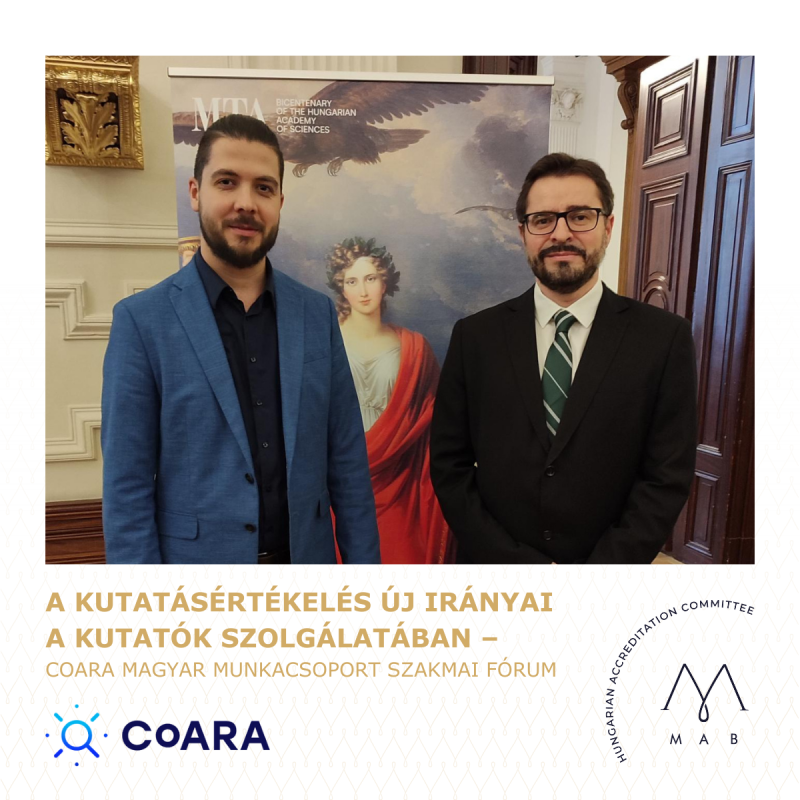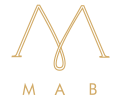In 2022, the CoARA organization (Coalition for Advancing Research Assessment) was established to promote research evaluation. In a joint statement, the organization outlined the 21st-century principles of research assessment, with a particular emphasis on the significance of qualitative evaluation and the balance between parametric and qualitative assessment.
MAB joined the Coalition from October 10, 2023. and has been an active member of the national chapter since November 2023.
The first national forum on reforming research assessment took place on October 9, 2025, hosted by the Hungarian Academy of Sciences and co-organized by the HUN-REN Hungarian Research Network.
The aim of the event was to showcase the possibilities of research assessment reform through national and international examples and to initiate a dialogue among researchers, institutional leaders, and funders.
In his opening keynote, László Kollár, Secretary-General of the Hungarian Academy of Sciences, presented in his introductory lecture the changing attitudes toward quantitative and qualitative indicators through international examples, as well as the increasingly widespread mechanisms of academic misconduct, and possible directions for solutions.
Katalin Sebők, Deputy Director-General of HUN-REN, started her presentation by providing an insight into the activities of the Researcher Career Path Working Group and the planned system of researcher consultations. In addition to the main strategic goals of the research network—such as fostering mobility between industry and research, attracting young researchers, and promoting societal engagement—attendees also received information about the planned regional CoARA Forum in 2026.
Erzsébet Tóth-Czifra, Project Manager of the CoARA Secretariat, illustrated how institutions can interpret the first four commitments of the ARRA (Agreement on Reforming Research Assessment) through international case studies and best practices.
The final speaker of the morning session, Sean Sapcariu, Programme Manager at the Luxembourg National Research Fund and coordinator of the CoARA Experiments in Assessment working group, emphasized that collaboration among the founding organizations (CoARA, DORA – Declaration on Research Assessment, the Global Research Council, and RoRI – Research on Research Institute) is essential for reforming research assessment. He introduced the working group’s online material titled EIA Idea Catalog, which will be published in 2026. This catalog summarizes the research assessment experiences gathered so far, offering ideas tailored to different levels of implementation, suggestions for connecting practices with experiences and literature, and tips for sharing outcomes.
The afternoon panel discussions started with two keynote presentations. Csanád Bodó (Eötvös Loránd University) presented the review of the researcher assessment system at the Faculty of Humanities, carried out within the framework of the CoARA Boost Project. The outcome of this review was a proposal submitted to the faculty leadership, recommending a shift from a “selective” assessment approach toward a more “supportive” one. Ádám Tóth (Utrecht University) introduced the principles of the university’s individual performance evaluation system—TRIPLE—which primarily focuses on individual development.
More information about the panel discussion topics and participants can be found here (in Hungarian).
Finally, the program concluded with small-group discussions, where participants collectively reflected on the research assessment practices of various organizations—such as HUN-REN and higher education institutions—as well as their experiences with the use of research infrastructures.
At the Forum, the MAB was represented by President János Ede Szilágyi and Director General Péter Levente Lakatos, along with Ágnes Bálint, Diána Csonka, and Judit Tarsoly.


